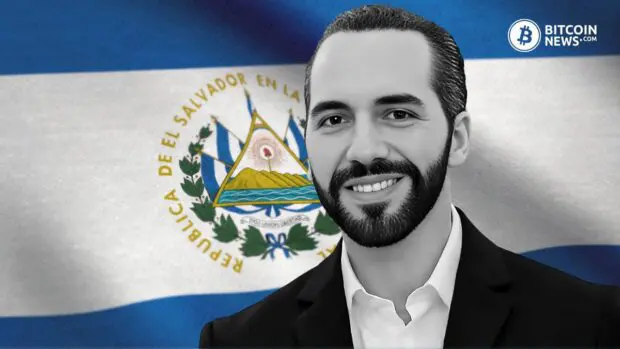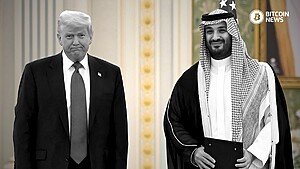The leaders of Western nations would do well to learn from the policies, attitudes, and governing style that have been exhibited by the El Salvador President, who has shown a remarkable ability to connect with everyday citizens in his country and implement innovative programs to improve economic and social conditions.
El Salvador, once notorious as the “murder capital of the world,” is undergoing a profound transformation. At the helm of this change is Nayib Bukele, whose leadership has not only significantly reduced crime rates but also propelled the country towards becoming the “safest country in Latin America.”
Politicians often make promises, but witnessing them fulfill those promises is a rarity. The extraordinary transformation of El Salvador stands as a testament to President Nayib Bukele’s audacious and forward-thinking policies.
Among these, his pioneering decision to recognize Bitcoin as legal tender shines exceptionally bright, garnering international focus and sparking widespread discussion. This move has not only positioned El Salvador at the forefront of financial innovation but also enhanced the freedom, safety, and options available to its citizens.
This article explores the strategic approach taken by President Bukele, highlighting the insights that Western leaders could learn from his tenure, emphasizing the value of bold leadership and the willingness to embrace new technologies for national advancement.
Addressing Crime at Its Core
While the adoption of Bitcoin has marked a significant stride towards curbing the excesses of financial manipulation caused by central banks around the world, it’s President Nayib Bukele’s aggressive crackdown on violent crime that has truly transformed El Salvador.
Bukele’s tactics have faced criticism for their heavy-handedness and potential violations of human rights. The international community, including human rights organizations, has expressed concerns over the methods used in the crackdown on gangs, such as mass arrests and the conditions of detention. However, extreme situations require extreme measures. Under his stewardship, the nation has witnessed a remarkable decline in crime rates, especially in homicides and extortion, which previously plagued the Salvadoran society.
El Salvador’s strategy has evolved to encompass not just rigorous law enforcement but also a broad-based initiative combining strict policing with proactive social measures. These measures aim to address the root causes propelling young individuals into gangs.
The strategic deployment of police and military forces has been crucial in breaking down gang networks, significantly, reducing violence and fostering a renewed sense of safety among residents. Recognizing, however, that lasting crime reduction transcends mere enforcement, Bukele’s government has also channeled resources into rehabilitation and preventative programs.
These initiatives seek to offer young people constructive alternatives to gang involvement, demonstrating a profound commitment to removing the foundations of criminal behavior. This holistic approach aims not only to ensure immediate public safety but also to build a community resilient to the resurgence of violence, marking a forward-looking stance in the fight against crime.
Enhancing Economic Freedom
President Nayib Bukele’s tenure has been marked by significant strides beyond the realm of public safety, notably in enhancing the pillars of freedom within El Salvador.
The groundbreaking decision to introduce bitcoin as legal tender epitomizes Bukele’s bold vision for economic empowerment and autonomy. This move transcends traditional financial systems, liberating Salvadorans from the confines of centralized monetary control dominated by a select few on the Federal Open Market Committee (FOMC). El Salvador was a dollarized economy before Bitcoin so they had no say in what the FOMC board decided to do with the dollar.
By integrating Bitcoin into the national economy, Bukele has not only championed financial innovation but also underscored a commitment to economic democratization. This approach offers citizens a reliable and decentralized currency option, fostering an environment where wealth generation and financial transactions are accessible to all, not just those privileged enough to have a bank account.
It’s also bottom up in the sense that anyone can still use dollars. Citizens now have a choice about what money to use. Alongside these economic reforms, Bukele’s focus on bolstering civic engagement and safeguarding human rights remains paramount.
These efforts collectively signal a decisive shift towards a society that values open participation, respects individual freedoms, and embraces technological advancements to overcome socioeconomic challenges. The incorporation of Bitcoin, therefore, is not just a financial maneuver but a testament to El Salvador’s aspiration for a democratic society bolstered by inclusive growth and technological progress.
Challenges and Controversies
Despite these achievements, President Bukele’s tenure has been marked by controversy, particularly regarding his methods of governance.
Critics have raised concerns about potential authoritarian tendencies, such as the deployment of military forces within the legislative assembly. These actions have sparked debates about the balance between security measures and the preservation of democratic norms. International organizations and opposition groups have voiced apprehensions about the implications of Bukele’s policies on democracy and human rights in El Salvador.
This Youtube comment from a Salvadorian citizen makes these concerns seems largely frivolous:
“@Throwaway-kg7ft (8 months ago):
I’m salvadoran so I will leave my two cents here. I experienced my first shoot out when I was 5 years old. I have lost people to gang violence, both family and classmates. A big chunk of my family and childhood friends had to leave the country. My generation grew up surrounded by an obscene amount of violence.
Everyday you would read in the newspapers that 15-30 people were murdered by gangs in a country that’s the size of Delaware.
However, since Bukele took office: My family’s small business has stopped paying protection money, the gang members who collected it have all been sent to jail or shot down by cops. Also, most family members have come back and are trying to make a living with the newfound peace we are enjoying.
It’s not much, but at least it’s BETTER than the hell we were living in before. I’m not here to convince anyone about anything. Just wanted to state facts that I, as a Salvadoran citizen, have experienced. Take it as you will. “
El Salvador President Ushering in A New Era
While no leader is flawless, and the notion that any one politician could be a panacea for societal woes is misguided, the tenure of President Nayib Bukele stands out for its tangible impact.
It’s invigorating to witness a leader who prioritizes tangible outcomes, such as significantly reducing violent crime, over mere electoral rhetoric. Under Bukele’s stewardship, El Salvador is experiencing a transformative era, marked by aggressive crime reduction measures and pioneering economic policies, notably the adoption of Bitcoin.
These initiatives have steered El Salvador onto a trajectory of profound change, enhancing its safety, democratic integrity, and economic innovation.
Despite facing challenges and controversies, the strides made towards establishing a more secure, open, and forward-thinking nation are clear and commendable. Bukele’s leadership offers valuable insights into the power of decisive governance and the potential of embracing technological advancements to solve age-old problems.
As El Salvador progresses, it serves as a compelling example to the global community, especially to Western leaders, of how daring leadership and innovative policies can dramatically alter a country’s course.










